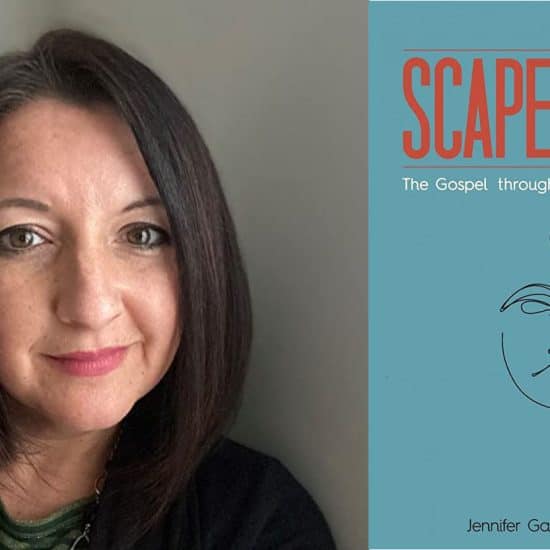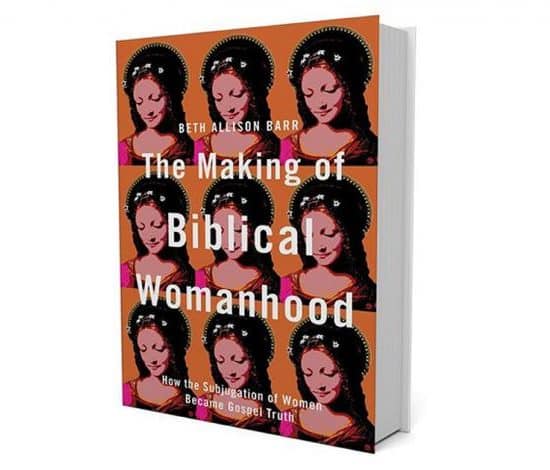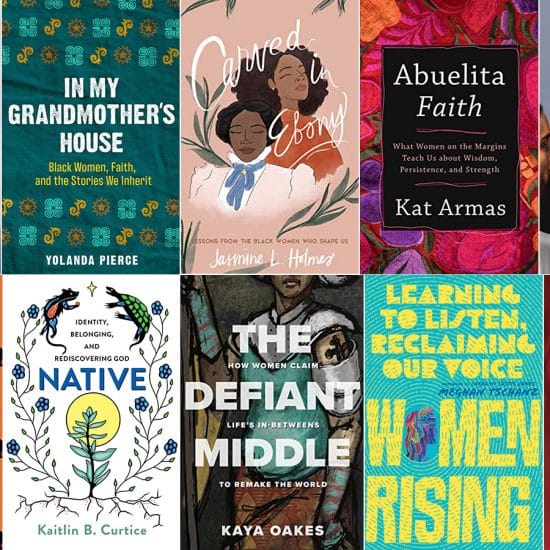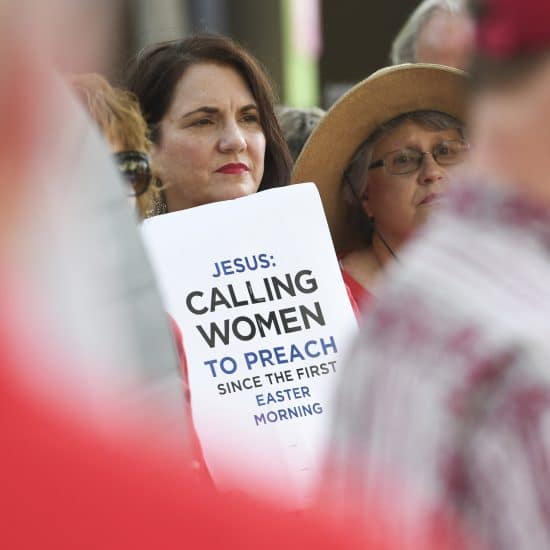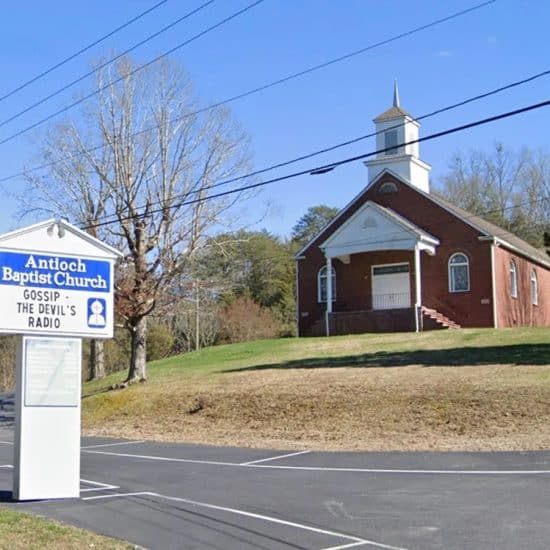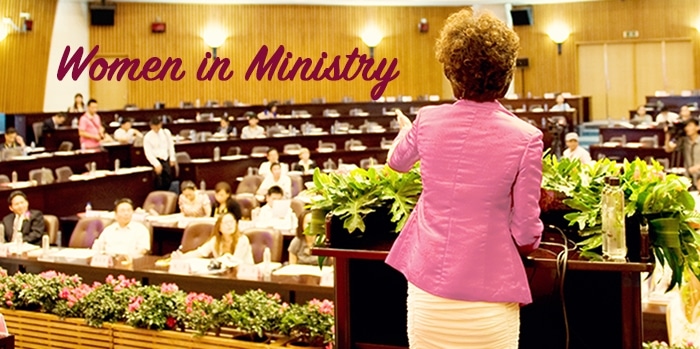
God has called Baptist women into ministry throughout the years. Women, such as Ann Judson and Charlotte Digges “Lottie” Moon, were missionaries — Judson with husband Adoniram went to Burma in 1812 and Moon appointed to China by the Southern Baptist Convention Foreign Mission Board in 1873. A Baptist, Judson is considered the first woman foreign missionary. Many more serve today.
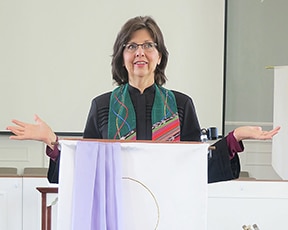
Kathy Pickett
|
Other women, like Helen Barrett Montgomery, supported education for women and mission causes, often spanning the globe as advocates. Their zeal sometimes opened opportunities to impact Baptists as a whole. For example, Montgomery was the first woman to serve as president of any American denomination, becoming the first female president of the Northern Baptist Convention in 1920. She also was the first woman scholar to translate the New Testament.
According to Baptist Women in Ministry, M.A. Brennan is the earliest known ordained Baptist woman. Bellevernon Freewill Baptist Church in Pennsylvania ordained her in 1876.
Today, Baptist leaders see more opportunities for women in ministry, but believe pastoral roles, particularly as senior pastor, remain limited.
BWIM, an Atlanta, Ga.-based support organization for women, has been collecting data on female ordination and pastoral service since its founding in 1983. It began with the SBC and, in 1987 and 1990, added the Alliance of Baptists, Cooperative Baptist Fellowship, the Baptist General Association of Virginia and the Baptist General Convention of Texas.
BWIM released four reports on the State of Women in Baptist Life, with the most recent in 2010. The total number of women as pastors or co-pastors reached 135 that year, up from the 102 recorded in 2005. Virginia led with 23. North Carolina followed with 19, Georgia with 14 and Texas with 11.
The number has continued to rise, according to BWIM Executive Director Pam Durso. The organization noted 153 women pastors or co-pastors in 2013. The number stood at 159 in 2014, with the count at 165 so far this year.
Durso believes the number of Baptist women pastors will continue to rise as women are chosen for other denominational leadership roles. She sees the hiring of Suzii Paynter as coordinator for national Cooperative Baptist Fellowship as particularly telling.
“…CBF has stepped up its game with women in decision-making leadership roles,” Durso said by email.
Three hundred ninety of the current 4,130 full-time American Baptist Church USA pastors (9.44 percent) are women. In addition, 43 women serve as co-pastors, 199 as associate pastors and 18 as bivocational pastors. Currently, 49 women have interim pastorates.
“More women are seeking pastoral leadership, and they see more opportunities arising — although senior minister is still hard to achieve,” Central Baptist Theological Seminary President Molly Marshall noted.
The first woman to head a Baptist seminary or divinity school in North America, Marshall stood up for women in ministry in Southern Baptist circles at the height of controversy between conservative and moderate factions in the 1980s and 1990s. As the conservative-fundamentalist faction exerted more control over SBC institutions, Marshall was forced to resign as an associate professor of Christian theology at Southern Baptist Theological Seminary in the mid-1990s.
Central Seminary’s president since 2004, Marshall believes women will continue to make strides because of some of the lessons they have learned and attitudes they have developed.
“I think they are learning some good practices about professional preparation, prayerful engagement, willingness to risk, willingness to take on volunteer positions as a means of demonstrating commitment to long-term goals, etc.,” Marshall said.
However, even as women in the pulpit are more acceptable, “it still remains very challenging for women of color — unless they start something themselves,” she added.
Cynthia Saddler, coordinating pastor of congregational relationships at Englewood Baptist Church in Gladstone, Mo., experienced resistance from the traditional African-American church as she sought to understand God’s call on her life.
Although she had been ministering to others since she was 12 years old, Saddler was around 40 when she acknowledged God’s call to preach. She “was devastated” that the church would not recognize women as pastors, she said.
But she felt called to remain part of the congregation where she “learned how to hear God’s voice for sure” and separate her desires from God’s call.
“God said I would preach at that church,” Saddler explained. And about eight or nine years later, from that pulpit, she preached her first sermon.
Staying with the traditional church “allowed me to develop patience and to be a strong advocate” for women, she said. Many times she was angry “because it felt like a man could come off the street and say that God had called him and the church would embrace that.”
Robin Sandbothe, coordinating pastor of spiritual relationships at Englewood and director of seminary relations at Central, sees more opportunities but still thinks women struggle to find positions.
When she felt called to be a senior pastor, not many posts were available unless women were willing to relocate to the East Coast. Even individual CBF churches were not as open to calling a woman, she explained.
She agrees that with Suzii Paynter as its leader, CBF “seems to have opened a little.” But the Midwest remains “hard,” Sandbothe added. “I still feel like I really need to be an advocate” for women.
Kathy Pickett also sees placement as the largest hurdle for women. The pastor of Prairie Baptist Church in Prairie Village, Kan., acknowledged that the numbers of women in ministry have grown. But she wonders if the calling of women to a few high-profile churches has colored the overall perception a little, perhaps giving the illusion of greater growth.
She said she believes more opportunities are available now but not to the same extent as those for men. “We don’t have [women] senior pastors or associate pastors in an equal way as men in the past have been accepted,” Pickett said.
And one Baptist group, by far the largest — the Southern Baptist Convention — remains adamantly opposed to women as pastors.
In an article posted on baptist2baptist.net earlier this year (baptist2baptist.net/b2article.asp?ID=58), the SBC Executive Committee noted 30 SBC-affiliated congregations have women as pastors. Committee members emphasized that while women are valued, Scripture forbids the highest church office to them.
“We don’t know how to say this more strongly: women and men are of equal value. However, because Scripture speaks specifically to the role of pastor, churches are under a moral imperative to be guided by that teaching, rather than the shifting opinions of human cultures,” they wrote.
The SBC cemented the concept into its statement of beliefs, the Baptist Faith and Message, in 2000.
Related story:


